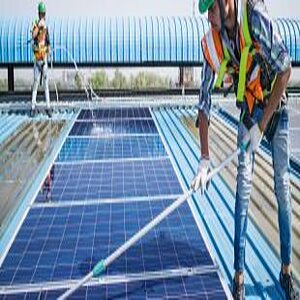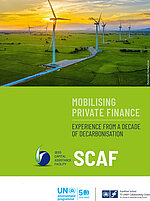Seed Capital Assistance Facility (SCAF)
Securing financing from the private sector for projects aimed at mitigating CO2 emissions in emerging and developing countries is very challenging. Firstly, private investors are reluctant to take on major risks. Secondly, the high fees charged for credit on international capital markets also makes project development more difficult. As a multi-donor trust fund, SCAF improves the financing of projects during the development phase to enable the rollout of climate-friendly technologies. This helps to promote sustainable, low-carbon development as well as economic growth while tackling poverty and working to contain climate change. The spectrum of funding programmes ranges from financial support for feasibility studies and business plans in the pre-investment phase through to the co-financing of approval procedures as well as due diligence audits in the later stages of the project development phase. The current geographical focus is on Asia and Africa.
- IKI funding
- 16,100,000.00 €
- Duration
- 11/2014 till 12/2026
- Status
- open
- Implementing organisation
- United Nations Environment Programme (UN Environment)
- Implementing Partner
-
- Frankfurt School of Finance & Management gGmbH
State of implementation/results
- Cooperating Partner Agreements (CPA) with additional SCAF II partners (Cooperating Partners) were signed totalling 17 now.
- Among others agreements were signed with The Blue Circle, Zoscales and GreenWish Partners.
- Requests by Cooperating Partners with a total volume of 450,9 MW were verified and approved by the Project Management Unit (PMU) during 2019.
Latest Update:
04/2024
Project relations
Legend:
The link has been copied to the clipboard





